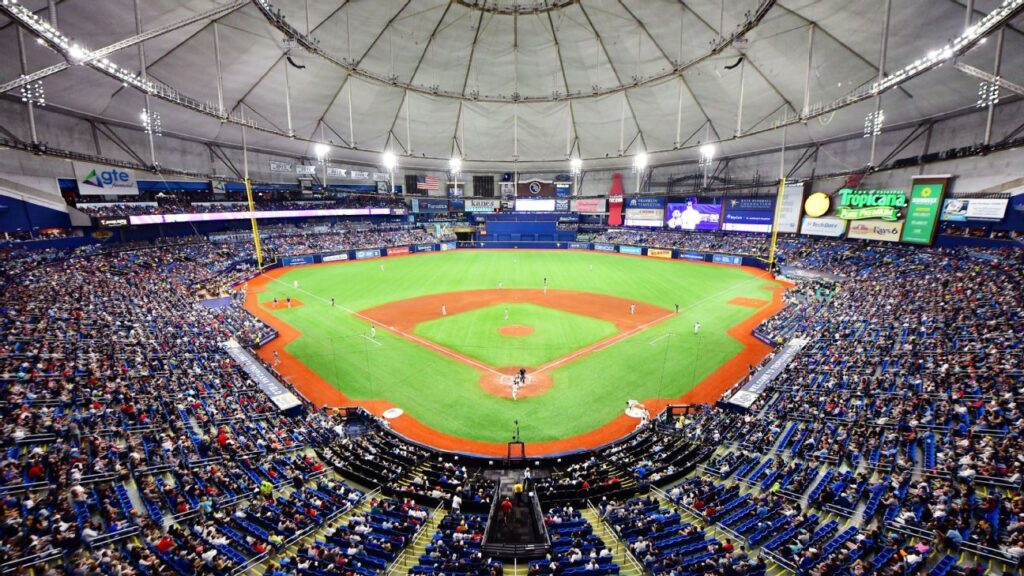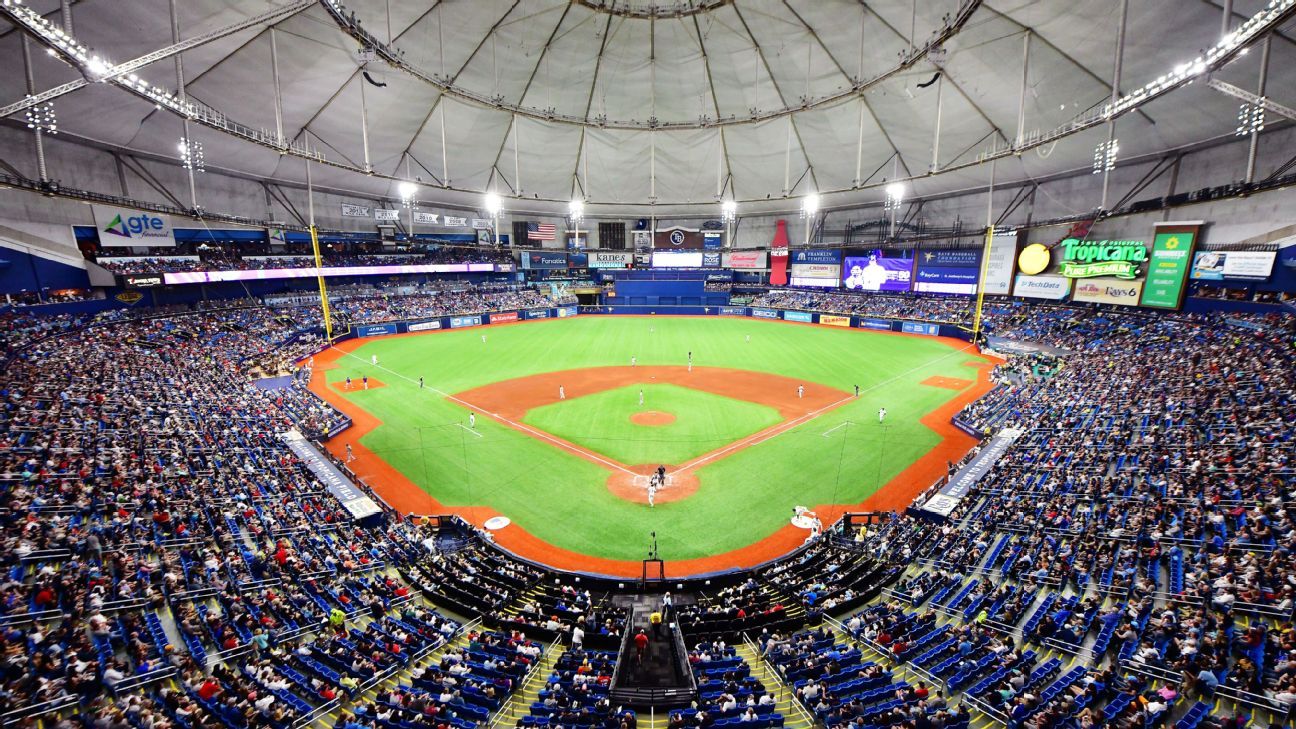Rays owner: MLB nixing Montreal plan ‘deflating’
The Tampa Bay Rays’ proposed plan to split the season between Florida and Montreal has been rejected by Major League Baseball….


The Tampa Bay Rays‘ inventive, controversial plan to split their home schedule with the city of Montreal was scrapped by Major League Baseball officials earlier this week, a decision that Rays owner Stuart Sternberg called “flat-out deflating.”
Rays officials had spent 2½ years hyperfocused on what was called a “sister city” proposal, believing it to be the best path toward increasing revenue without permanently relocating the franchise. Now they must pivot, either by revisiting Tampa Bay-area-stadium talks that had previously stalled or by exploring a new city altogether. Sternberg, who took questions in a video conference for more than half an hour on Thursday afternoon, was noncommittal.
“We’re certainly gonna be exploring things in the Tampa Bay region,” Sternberg said. “I’ve said since I’ve owned the team for 17 years that our goal has been to keep it here for generations and generations. We have tried in the past to build in St. Petersburg, we’ve tried to build full season in Tampa, as well, so the idea that it wouldn’t work completely is not necessarily the way our approach has been. We felt this [the ‘sister city’ plan] was a much better approach, and something that ensured that it would work. We’ll see how the stands look this year and the support we get, and that’s gonna help inform us, as well, going forward on our plans.”
The Rays have been the industry standard — along with the Oakland Athletics, who are navigating their own ballpark issues — at achieving sustained winning in spite of lesser revenue streams.
The Rays have won back-to-back American League East titles, outpacing financial behemoths like the New York Yankees and the Boston Red Sox, and have reached the postseason seven times over the past 14 years. But they have also ranked no better than 28th out of 30 teams in average attendance since 2011. Last year, coming off a World Series appearance, Tropicana Field hosted 761,072 fans, a total that surpassed only those of the A’s and the Miami Marlins.
The Rays’ financial commitments have been commensurate with those attendance figures, their Opening Day payrolls never reaching $80 million and ranking within the bottom five in the sport at the start of each of the last 11 seasons. The Rays’ lease at Tropicana Field expires after the 2027 season, and the belief is that the team would need to solidify plans for a new home by 2023 if it hopes to remain in the area.
“There’s nothing more that I’d like to have happen than to just stay here,” Sternberg, speaking from the center field pavilion at Tropicana Field, said. “We can stay here for 30 more years, potentially, right? But for some reason, it seems to be contributing to the lack of attendance. At least that’s the belief here. So we are going to be looking for a new venue. … We’re gonna keep trying here in this market, and we’re gonna do our best, as we have been, and focus on putting a winning product on the field. And I do still believe that the region is willing to and able to and is looking forward to supporting us in every way it can.”
The Rays explored the possibility of a waterfront stadium in downtown St. Petersburg, Florida — the city that hosts its current domed ballpark — in 2008. Ten years later, there were talks about a fixed-roof stadium in Ybor City, a historic neighborhood within Tampa.
Months after the latter plan was squashed, Rays officials partnered with Montreal business leader Stephen Bronfman to work on a “sister city” concept that would take advantage of ideal weather in both cities and would theoretically drive more revenue because of an increased demand for limited tickets. The latest iteration of the plan had the Rays navigating through spring training and the first two months of the regular season in the Tampa Bay area, then transitioning to Montreal around early June. The two cities would alternate hosting duties during the postseason and would each be outfitted with new, open-air ballparks.
The plan received a lot of criticism from Rays fans who didn’t support the concept of sharing their favorite team and blamed the current ballpark’s aesthetics and location for the team’s poor attendance. But Sternberg and Rays officials seemed to believe it had the support of MLB’s eight-person executive council, which initially gave the team permission to explore the plan in June 2019. Rays and Montreal officials made their final pitch to the group during the owners meetings in November.
MLB commissioner Rob Manfred informed Sternberg on Tuesday that the group had rejected it, largely because the logistics were too complex and it was too risky to make long-term commitments to such a nuanced concept. MLB declined to publicly comment on its decision. Sternberg nonetheless believes partial seasons “are going to be the wave of the future in professional sports” and that MLB simply didn’t want to be the first league to take that step. Asked if he felt “betrayed” by his fellow owners, Sternberg said: “That’s a word. That’s a word.”
“This was something that we just completely pushed our chips in on here for the sister city,” said Sternberg, who has yet to seek permission from MLB to relocate. “It was a bold concept, but it was something that we thought would’ve been incredibly rewarding for baseball, for the players and for the fans in both areas. Again, those were our thoughts. Now going forward, we’re gonna regroup and see where things are, and we’ll consider a number of things, I’m sure, as time goes by.”







